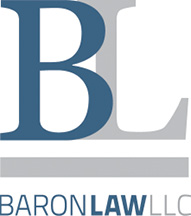Sponsored
The Essential Components of a Comprehensive Estate Plan
by Dan A. Baron, Baron Law LLC
Estate planning is a critical process that ensures your assets, family, and personal wishes are protected and managed in the event of your incapacity or death. Despite its importance, many people delay creating an estate plan due to misconceptions, procrastination, or the belief that it’s only for the wealthy. However, a comprehensive estate plan is vital for individuals of all ages and income levels, as it provides clarity, minimizes family disputes, and ensures your legacy is carried out according to your wishes. Below are the key components of a well-rounded estate plan that every family should consider.
1. Last Will
At the heart of any estate plan is a will. This legal document outlines how you want your assets distributed after your death. It allows you to name beneficiaries for your property, appoint guardians for minor children, and designate an executor to manage your estate. Without a will, state laws will dictate how your assets are divided, which may not align with your wishes. Drafting a clear, legally valid will ensures that your intentions are honored and that your loved ones are cared for. Note however, a last will does not avoid probate court.
2. Living Trust
While a will is important, a trust can provide additional benefits, particularly for those wanting to avoid probate or complex family situations. A trust allows you to transfer assets to a trustee, who manages them on behalf of your beneficiaries. Trusts can help protect assets, provide privacy, and offer control over how and when assets are distributed, unlike outright distributions through a will. Popular types of trusts include revocable living trusts, irrevocable asset protection trusts, and special needs trusts, each serving different purposes based on your goals.
3. Powers of Attorney (POA)
Powers of attorney are critical components of an estate plan that grants someone you trust the authority to make decisions on your behalf if you become incapacitated. Without a POA, your family may need to go through a lengthy and costly court process to gain control over your affairs.
Financial POA: Grants a trusted individual the authority to manage your financial and legal affairs if you become incapacitated. This can include tasks such as paying bills, managing investments, or handling property transactions on your behalf.
Healthcare POA: Designates either that same individual or another trusted person to make medical decisions on your behalf if you become unable to do so. This ensures that your healthcare preferences are respected and critical decisions are made by someone who understands your values and wishes.
4. Additional Healthcare Directives
These documents work in harmony with your Healthcare Power of Attorney to ensure that all aspects of your healthcare needs and wishes are covered:
Living Will: Outlines your wishes regarding life-sustaining treatments, such as resuscitation or mechanical ventilation.
HIPAA Authorization: Allows designated individuals to access your medical records and communicate with healthcare providers.
5. Beneficiary Designations
Certain assets, such as retirement accounts, life insurance policies, and payable-on-death accounts, allow you to name beneficiaries directly. These designations take precedence over your will, so it’s important to review and update them regularly, especially after major life events like marriage, divorce, or the birth of a child.
Ensure that your beneficiary designations align with the rest of your estate plan to avoid conflicts or unintended consequences. If you have a trust that cleanly lays out how you would like your funds distributed, you can also name your trust as a payable on death beneficiary for certain accounts which adds a layer of protection for the assets you are passing on to your loved ones.
6. Letter of Intent
A letter of intent is an informal document that provides guidance to your executor or loved ones about your final wishes. While not legally binding, it can include instructions for your funeral arrangements, personal messages to family members, or details about specific assets. This estate plan and ensures your intentions are clearly understood.
7. Guardianship Designations
If you have minor children, naming a guardian in your will is one of the most critical decisions you’ll make. This ensures that your children are cared for by someone you trust if something happens to you. Without a guardianship designation, the court will decide who takes custody of your children, which may not align with your preferences and can cause conflict within your family. It’s important to choose someone who shares your values and is able and willing to provide a stable, loving environment.
8. Tax Planning
Estate taxes can significantly reduce the value of the assets you pass on to your heirs. A comprehensive estate plan should include strategies to minimize tax liabilities, such as utilizing trusts, gifting during your lifetime, or setting up charitable donations. Consulting with an estate planning attorney or tax professional can help you navigate the complexities of tax laws and preserve more of your wealth for future generations.
Conclusion
A comprehensive estate plan is a thoughtful gift to your loved ones, providing them with clarity and security during difficult times. It’s more than just a will; it encompasses various tools and strategies to manage your assets, healthcare decisions, and personal wishes. By working with an experienced estate planning attorney and staying proactive about updates, you can create a plan that protects your legacy and provides peace of mind for you and your family. To get started on your estate plan, contact Baron Law at 216-573-3723 or dan@baronlawcleveland.com

Sponsored By
Baron Law LLC
Crowne Centre, Suite #600
5005 Rockside Road
Independence, Ohio 44131
216-573-3723
www.baronlawcleveland.com
Opinions and claims expressed above are those of the author and do not necessarily reflect those of ScripType Publishing.

